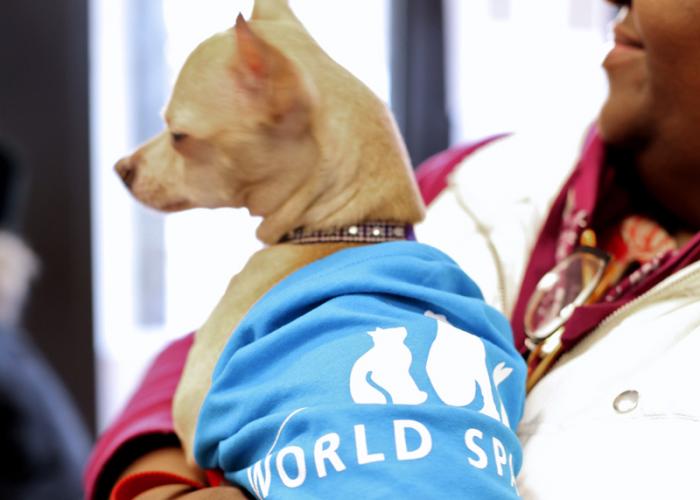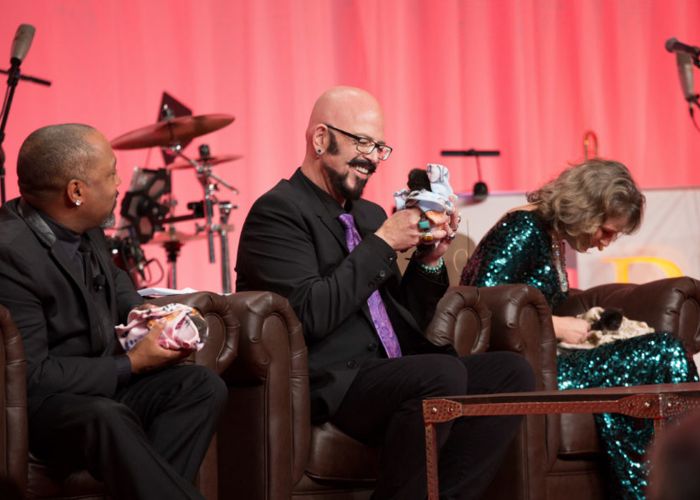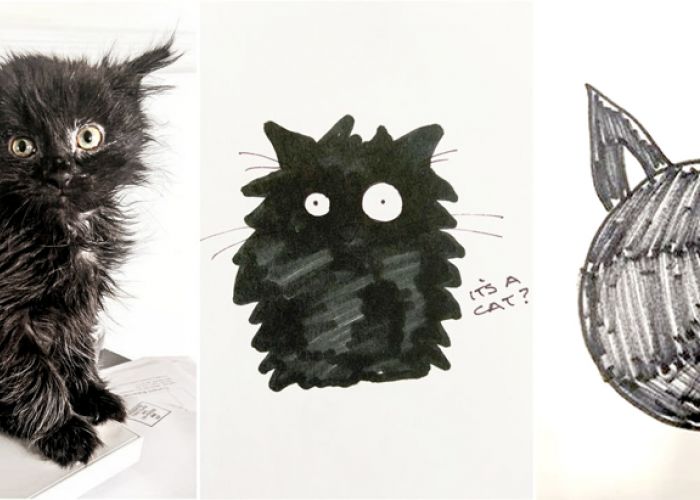Tails on the trails
Nonprofit Free Animal Doctor and Airbnb offer excursions with rescue dogs
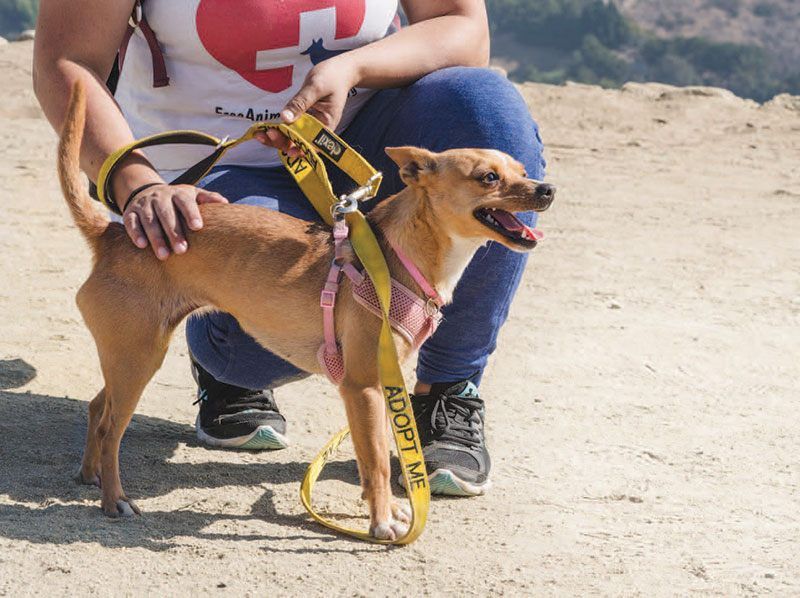
On the eastern edge of the Santa Monica Mountains in California, Runyon Canyon Park is known for its rugged trails, celebrity sightings, and views of the Los Angeles basin, the iconic Hollywood sign and, on a clear day, the Pacific Ocean.
Among locals, the park has also long been known as a great place to take dogs, with several designated off-leash areas. But until recently, the dog-friendly policies weren’t much of a draw for tourists.
That changed in 2017, not long after Sam Bernardo learned that Airbnb (an online marketplace where people can book privately owned travel accommodations) was looking for nonprofits to host “social impact experiences.”
Bernardo and his friend Ryan Boyd had recently launched Free Animal Doctor, a nonprofit crowdfunding website that helps individual pet owners and animal welfare organizations raise money for veterinary care they can’t otherwise afford. They were looking for ways to boost the organization’s profile and provide more exercise and socialization to dogs in the nonprofit’s small foster care program.
Debuting on Airbnb’s list of recommended excursions for LA tourists in July 2017, “canyon hikes with rescue dogs” took off immediately, says Bernardo. Several times a week, tourists gather at the park’s southern entrance for a two-hour trek across rugged dirt trails, accompanied by a guide and a pack of excited pups.
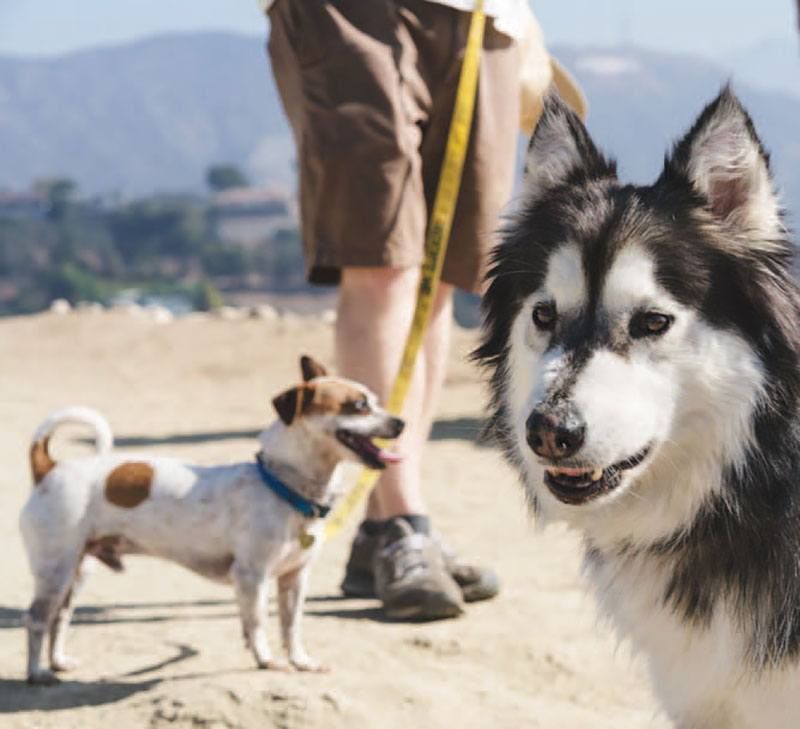
“An amazing and truly memorable experience,” wrote Michael from Switzerland in a review on Airbnb’s website. “Nothing short of fantastic,” posted Michelle from Singapore.
In spring 2018, Bernardo and Boyd expanded the program to include beach walks in nearby San Diego, with local rescues helping to provide more dogs and sharing in the proceeds.
Participants register and pay the $45 per person fee through Airbnb’s online system, and all proceeds go back to the nonprofit. In the first year, Free Animal Doctor raised over $112,000 through its guided hikes, bolstered by glowing reviews from tourists.
Other animal welfare organizations report similar successes, says Stephanie Hong, manager of Airbnb’s social impact and animal experiences. Wildlife rehabilitation centers, sanctuaries and rescues around the world “are offering some of the most popular experiences on the [Airbnb] platform.”
Bernardo advises interested nonprofits to first make sure their area attracts a large number of Airbnb guests, consider local weather conditions when choosing an activity and have realistic expectations.
He and Boyd initially thought the hikes would be a good way to find homes for their fosters. But since 70% of participants are from other countries, the impact on adoptions has been mostly indirect. Hikers take photos and videos to help promote individual dogs, and the extra socialization can have a big impact on dogs’ adoptability.
That was the case for a small mixed breed with an abusive past. Mona was a “beautiful dog, but aggressive,” says Bernardo. “You couldn’t touch her.” But with some nurturing in a foster home and many successful hikes, Mona “turned out to be the best dog,” he says, and eventually found a home.
For animal welfare organizations that are considering launching a similar program, Bernardo recommends a trip to California. “Nothing we know is magic or unique; it’s from experience. You need to come do a tour!”


